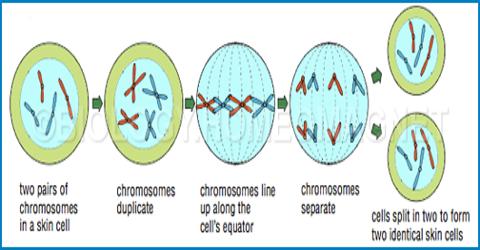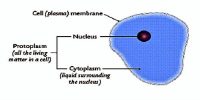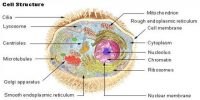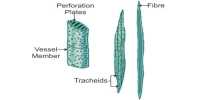Mitosis means equational division, because
Mitosis is called equational division because number of chromosomes remain equal before and after division. Or in other way, if parent cells is haploid then the resultant daughter cells will also be haploid. But if parent cell is diploid then the resultant daughter cells will also be diploid. The chromosomal number and properties of the two daughter cells newly formed from one cell remain similar to their mother cell.
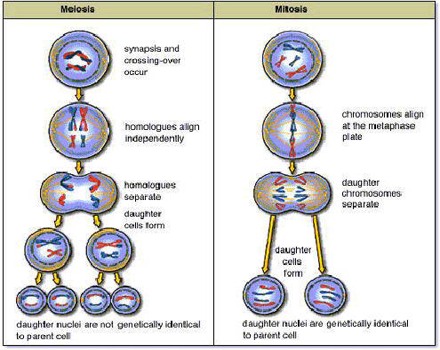
Each of the daughter cells again divides and gives rise to two daughter cells. In this case, the daughter cell also bears same characteristics of its mother cell.
As mitosis occurs in somatic cells, it goes on repeatedly up to the full development of the organism without any change of characteristics of the mother cell.
In mitosis, a single mother cell divides to produce two daughter cells and the genetic materials of the mother cell are equally distributed in the daughter cells.
In mitosis, 2n = 2n.
Thus, mitosis is known as an equational division.
On the basis of the characteristics mentioned above mitosis is also called equational division.
